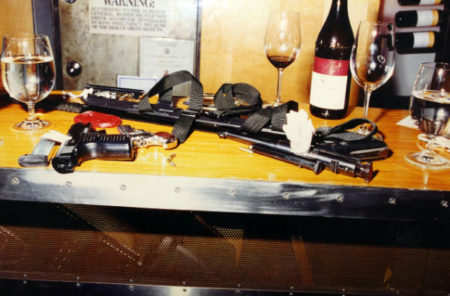The tragic events in Orlando over the weekend highlight a harrowing reality of the hospitality industry that our workplaces are among the most vulnerable to acts of violent intrusion. The wounds are still fresh from the terror plot last November in France where, in addition to a brutal attack at a concert venue, gunmen opened fire in several outdoor cafes along the streets of Paris killing and injuring scores of patrons and restaurant employees.
Fatal violence in restaurants is not new. In 1984, a perpetrator entered a McDonald’s in San Ysidoro just outside of San Diego killing 21 people with assault weapons. The first victim was the restaurant manager who thought it was a prank. Seven years later, in one of the worst public shootings in American history, a killer drove his car through the window of Luby’s Cafeteria, a crowded restaurant in Kileen, Texas, murdering 23 people and wounding many others.
These incidents are not isolated to small town America. In New York in 2002, an armed man entered Bar Veloce, a wine bar in the East Village, at 2 a.m. carrying three pistols, a samurai sword and a container of kerosene. The gunman took 40 bar patrons hostage, shooting several of them including a sushi chef from next door and dousing them with kerosene before two female hostages disarmed him.
The welcoming nature of restaurants makes us easy marks for criminals. Pickpockets and petty thieves exploit our open doors to prey on unassuming guests who feel a false sense of security. But as these recent incidents illustrate, the consequences of offering such easy access to anyone can be catastrophic. So, with the growing threat of terrorism and random attacks why don’t restauranteurs do more to protect their employees and guests?
Restaurants, already burdened with tight budgets, rarely invest in on-site security. At most, you’ll find camera surveillance systems but those are often installed to fulfill requirements laid out by insurance companies to keep premiums low. Bars and nightclubs—where alcohol consumption can lead to violent behavior—may have bouncers for crowd control but most restaurants don’t, no matter how busy they are. Yet its fairly common in restaurants to find unruly or intoxicated guests acting belligerently without proper security to shield employees from danger.
Restaurant owners are much more preoccupied with deterring theft. In crisis moments, workers are left to police the interests of the restaurant even though they rarely have any formal training in law enforcement. Management often expects staff to put itself in harm’s way to pursue diners who walk out on their check. Some restaurateurs—whether legal or not—will even force their employees to cover an unpaid bill when a table dines and dashes in their section. Chasing down criminals should not be a job requirement of anyone who works in a restaurant.
What happened in Orlando should be a wakeup call for our industry. As municipalities commit more security to public places like subway stations and outdoor events, we should not forget that restaurants are the most popular locations for communities to gather everyday. While our industry wrangles over whether or not we should allow tipping, the question of how to curtail violence in our bars and dining rooms is routinely ignored.
Our thoughts and prayers go out to all the innocent victims of this tragic attack but especially to the staff of the Pulse night club who were trapped in the line of fire. We can honor their memory by considering how we secure ourselves and our guests more carefully so that restaurants remain sanctuaries from the harsh realities of the outside world instead of theaters for random acts of violence.
UPDATE: Twenty Hostages were brutally killed in Dhaka, Bangladesh after an 11-hour standoff with militants in an upscale restaurant frequented by foreigners. Witness describe some victims as having been “hacked to death” by the assailants.



 A restaurant experience is like an amusement park ride. Everybody with a ticket gets a turn to ride the Ferris Wheel. But if random people decide they want to remain in their cars so they can go around again and again like an entitled toddler, there are going to be a lot of paying customers in line getting the shaft. It isn’t any less fair to expect someone to disembark from a ride in a theme park than it is to vacate their table in a restaurant in a reasonable amount of time.
A restaurant experience is like an amusement park ride. Everybody with a ticket gets a turn to ride the Ferris Wheel. But if random people decide they want to remain in their cars so they can go around again and again like an entitled toddler, there are going to be a lot of paying customers in line getting the shaft. It isn’t any less fair to expect someone to disembark from a ride in a theme park than it is to vacate their table in a restaurant in a reasonable amount of time.